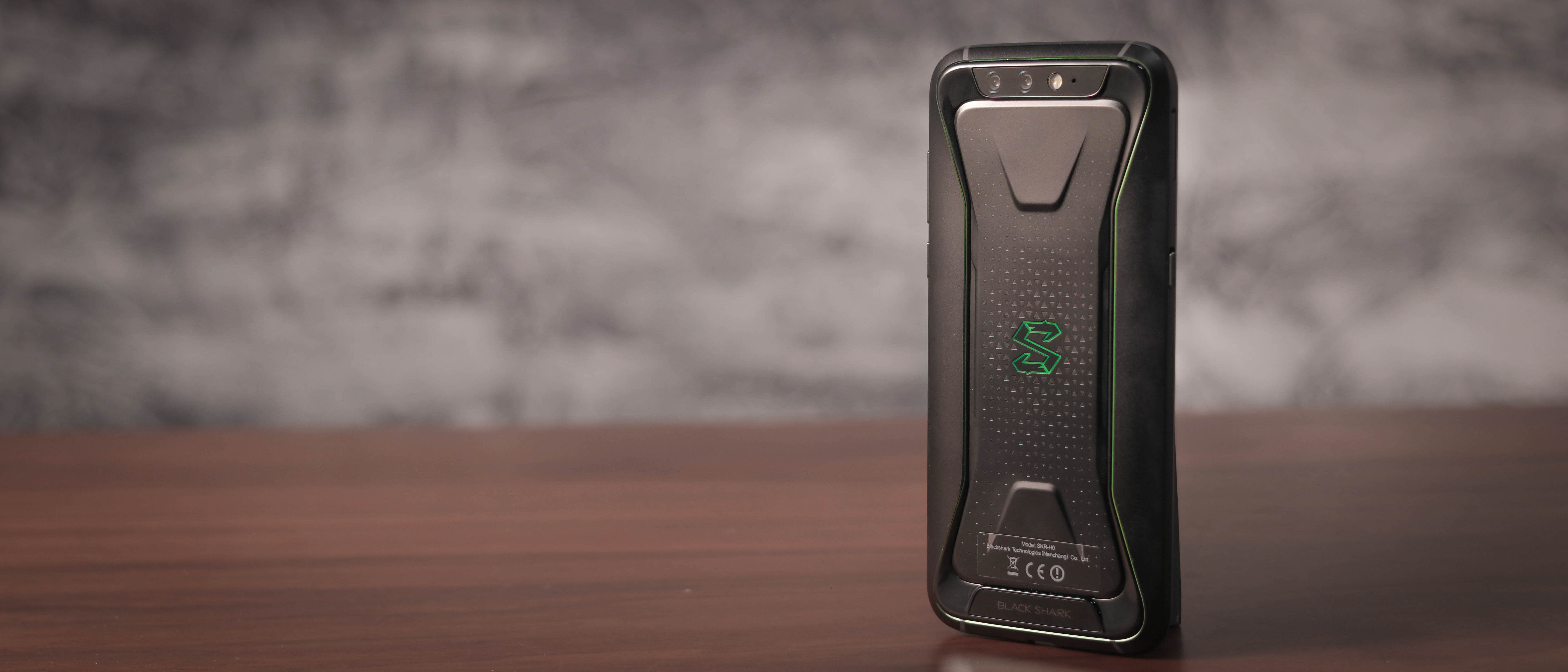TechRadar Verdict
The Black Shark is a cost-effective way to get a Snapdragon 845 chipset with up to 8GB RAM and 128GB storage - an excellent combo for mobile gamers. As for the rest of the phone, for the most part, it's fine, but seldom exceptional. So unless you specifically want a gaming phone, there's a good chance you'd be better served with a more mainstream device.
Pros
- +
Affordable Snapdragon 845 phone
- +
Great storage options
- +
Gaming accessories add flair
Cons
- -
Average battery life
- -
No NFC
- -
Buggy UI
Why you can trust TechRadar
Black Shark, Xiaomi's gaming phone brand, is out for blood, and it’s got its sights firmly set on the likes of Razer and Asus, two of the current contenders in the gaming phone market. Undercutting the competition with its flagship phone, also called Black Shark, it's bringing gaming specs and accessories to a wider audience than its rivals.
However, with the newcomer lacking features like front-firing stereo speakers and a high refresh rate display – both gaming phone staples present in the Asus ROG Phone and the Razer Phone 2, as well as water or dust resistance, is the Black Shark dead in the water before the gaming’s even begun?
Razer Phone 2 release date and price
The Black Shark is available now in the UK and Australia from Black Shark’s website and through independent retailers.
It’s available in two versions, packing either 6GB RAM and 64GB storage, or 8GB RAM and 128GB storage.
The 64GB Black Shark costs £439 in the UK and AU$575 in Australia, while the 128GB Black Shark retails for £479 in the UK and AU$665 in Australia.
It’s also available in China and other European markets, though no US release has been confirmed.
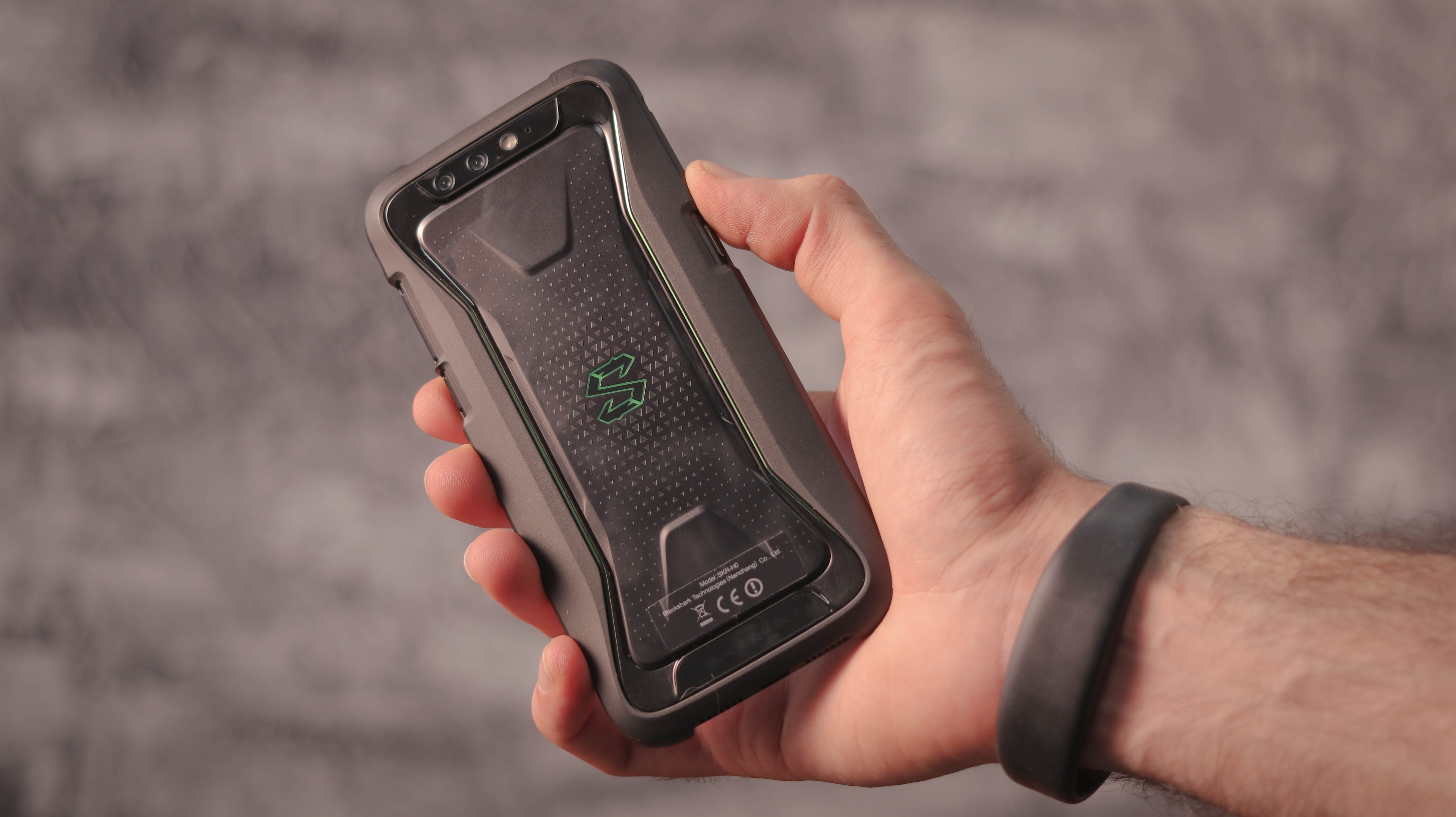
Key features
The Black Shark is a cold metal phone with an aggressive look about it and an illuminating green logo on the back – it’s clear that this is a phone that doesn’t want to blend in.
The 6-inch wide Full HD screen is ample, and its 18:9 aspect ratio keeps it looking current – much more so than the Razer Phone 2 – but there’s no notch, just a traditional rectangular screen with slightly curved corners.
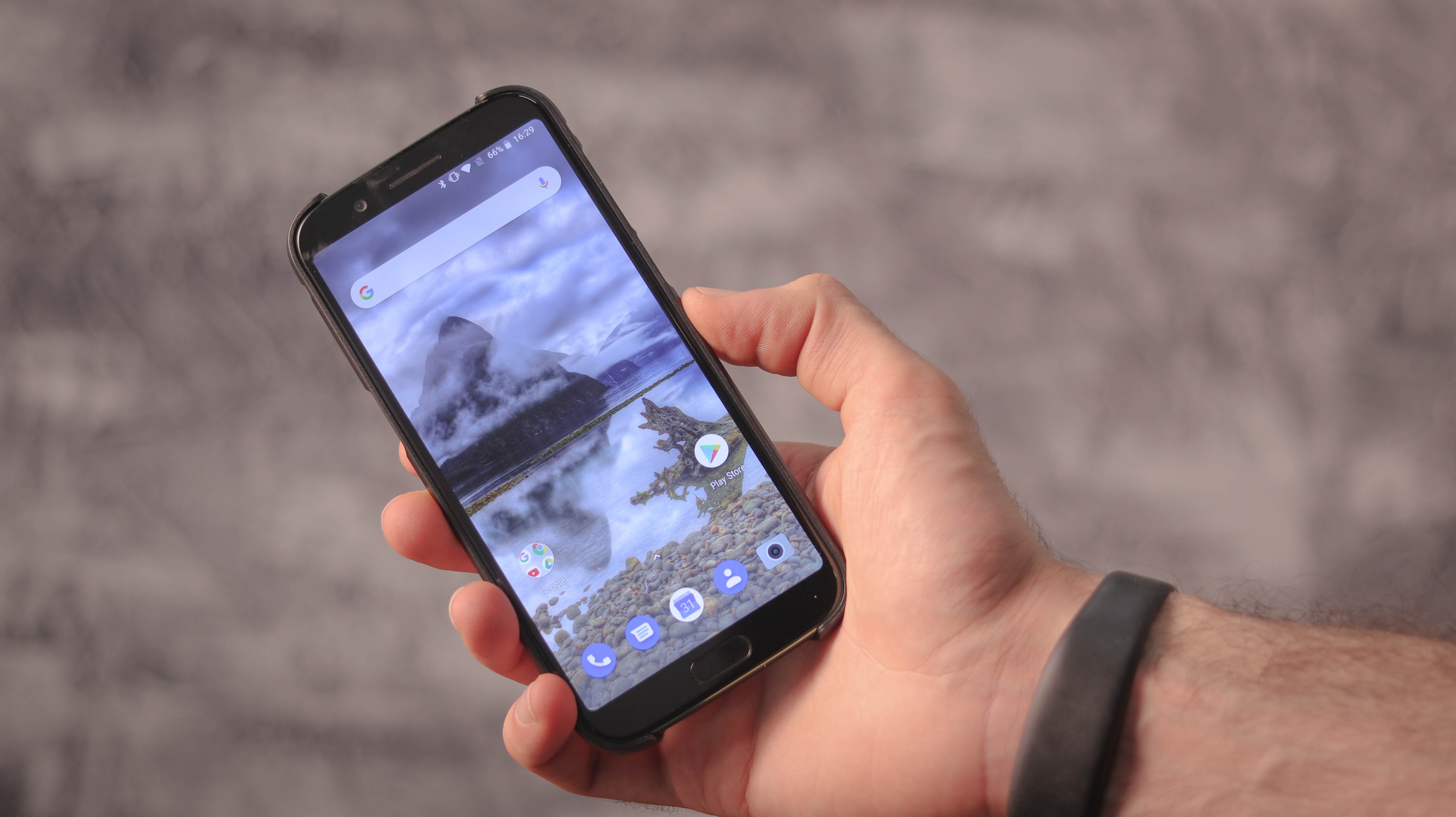
It packs most of the essentials, including a fingerprint scanner that doubles up as a home button and a USB-C port, though the omission of a headphone jack and, more surprisingly, NFC, did leave us scratching our heads a bit.
Still, cast a quick eye over its spec sheet and it’s clear that neither of those shortcomings will stop the Black Shark tearing through advanced 3D games, thanks to the Snapdragon 845 chipset inside paired with 8GB RAM.
As for the battery, it goes toe-to-toe with the competition, packing 4,000mAh.
Design
Sharks aren’t regarded as dainty and this one is no exception, measuring 9.3mm thick. It isn’t that light either at 190g, but given its 6-inch screen size and the fact it doesn’t have giant bezels, it’s still an easy-to-pocket, easy-to-hold phone.
On the front is the 18:9 Full HD display, with a fingerprint scanner below it. Either side of the fingerprint scanner are two capacitive navigation buttons, with the scanner itself doubling up as a home button. There’s also a 20MP selfie camera above the display.
The heavily beveled sides are reminiscent of the HTC 10, all adding to an almost Batman-style armored aesthetic that really hits the point home: this isn’t a mainstream smartphone.
A protective plastic bumper is included with the phone, saving the sides from scuffs and scratches. Meanwhile, the small bevels on the back and front of the phone are accented green, grabbing light nicely and adding flare.






On the left side are volume and power buttons, at the base is a USB-C port, and on the right-hand side of the Black Shark is a toggle to activate Shark Space – more on that later.
There’s no headphone jack on the phone, but a USB-C to 3.5mm jack converter is included in the box.
The back of the phone is where all the design zing dwells. A Game Gear or Atari Lynx-shaped pattern is recessed into the metal, and dual cameras are positioned in the upper side, while dead in the center is the Black Shark logo. This illuminates green, and green alone, unlike the RGB logos found on the Razer Phone and ROG Phone.
The back also features faintly etched patterning – Black Shark’s triangular mesh-like brand pattern – so while there’s nothing about the design that’s revolutionary, the fact it resembles an armored, green-accented handheld retro gaming device is only a good thing given the target user.
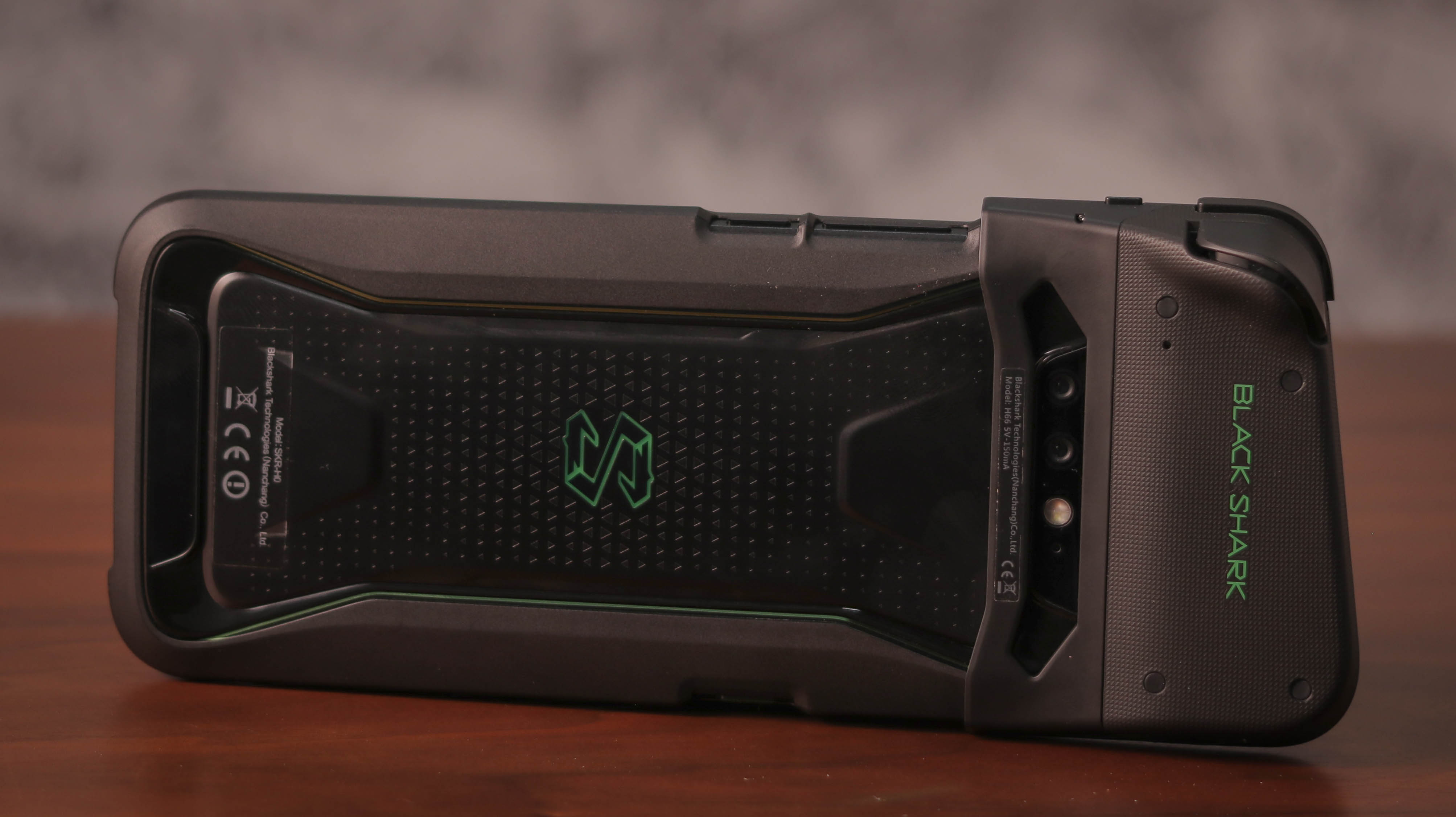
Display
While other gaming phones have high-speed refresh rates – 120Hz for the Razer Phone series and 90Hz for the Asus ROG Phone, the latter featuring AMOLED technology – the screen is probably the most vanilla thing about the Black Shark.
The resolution is 1080 x 2160 pixels, while the screen tech is IPS LCD with a 60Hz refresh rate – as found in most smartphones today. Measuring six inches and sporting an 18:9 ratio, it delivers iPhone 8 Plus levels of sharpness, with a pixel density of 403 pixels per inch – significantly lower than the Quad HD Razer Phone 2 for example.
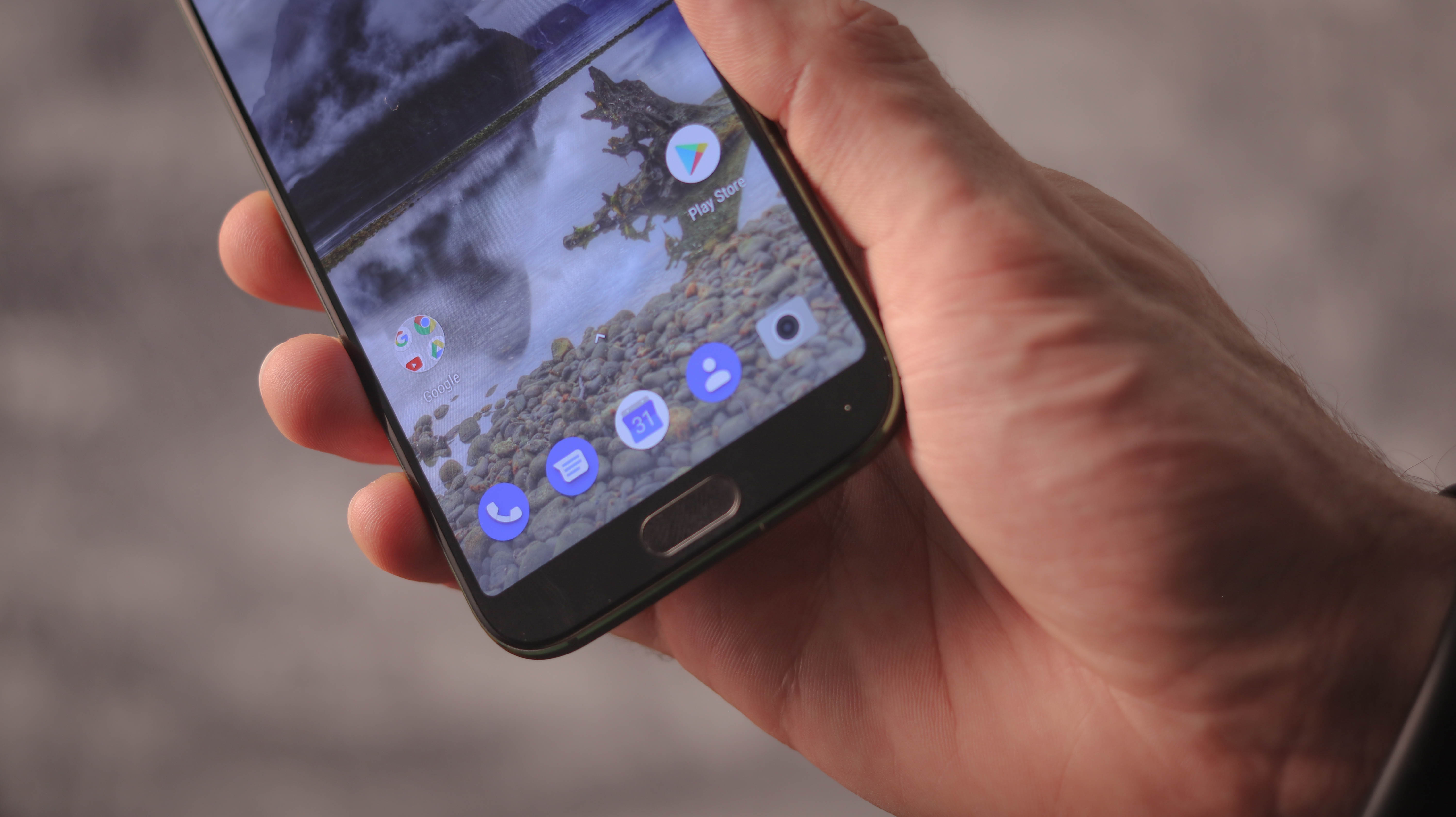
On the plus side, it’s a good IPS panel – it’s bright and delivers better saturation and contrast levels than cheaper contenders, and is also responsive to the touch and sharp enough to keep visible pixels at bay. While it isn’t cutting-edge, the Black Shark still delivers a decent display.
The only area where the screen noticeably falls behind other phones, such as the Huawei Mate 20 X or the Asus ROG Phone, is depth, especially in its blacks. When gaming or watching a movie in the dark, any black letterboxing is visibly emitting light, something you don’t find with premium, inky AMOLED smartphone screens like the one on the Note 9.
It’s also worth noting a few options in the settings before wrapping up with the screen. First off, as is standard in Android 8.1, there’s a Night Light feature that filters blue light that might interfere with your sleep.
In addition, the Black Shark features a Super Cinema Mode, which apparently boosts frame rates and optimizes video playback quality. We noticed it definitely bumped up saturation nicely when watching videos and playing games, so kept it turned on.
Basil Kronfli is the Head of content at Make Honey and freelance technology journalist. He is an experienced writer and producer and is skilled in video production, and runs the technology YouTube channel TechEdit.
